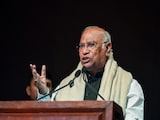- A clinic in Saudi Arabia uses AI for patient diagnosis and treatment.
- Synyi AI partnered with Almoosa Health Group for the innovative trial program.
- AI doctor Dr Hua collects data from patients via a tablet during visits.
The world's first clinic where patients will be diagnosed using artificial intelligence (AI) has opened in Saudi Arabia. A China-based medical technology company called Synyi AI has partnered with Almoosa Health Group for the trial programme, which began last month in the eastern province of Al-Ahsa, according to a report in Leaders magazine.
The clinic aims to replace human doctors as the first point of contact for diagnosing and treating patients. However, humans are still involved in the system as "safety gatekeepers".
"AI Clinic is an innovative medical service system where AI doctors independently complete the full-chain medical operations from inquiry to prescription, with human doctors acting as "safety gatekeepers" to review the diagnosis and treatment results," the Shanghai-based company said in a statement.
How does the AI clinic work?
After patients arrive at the clinic, they describe their symptoms using a tablet computer to an AI "doctor" called "Dr Hua". Akin to a real doctor, the AI variant follows up with more questions and analyses data and images taken with the help of human assistants.
Once the consultation is over, Dr Hua provides a treatment plan, which is signed off by a human doctor after a thorough review. Human doctors remain available for emergencies that AI cannot handle.
Currently, the AI doctor is limited to providing consultation about respiratory illness, covering about 30 diseases such as asthma and pharyngitis. Synyi AI is aiming to expand the doctor's database to cover 50 respiratory, gastroenterological, and dermatological diseases.
Also Read | Russia, China Sign Agreement To Build Nuclear Power Station On Moon
The pilot programme's diagnostic data will be submitted to Saudi authorities with approval expected within 18 months. As per Synyi AI, the technology had an error rate of 0.3 per cent during a testing phase, prior to the ongoing trial.
"What AI has done in the past is to assist doctors, but now we are taking the final step of the journey to let AI diagnose and treat the patients directly," said Synyi AI CEO Zhang Shaodian.
The company, backed by Tencent, Hongshan Capital, GGV Capital and local government, claims to use localised large language models (LLMs) for the AI models, which is customised with region-specific medical language, local languages and cultural nuances.















